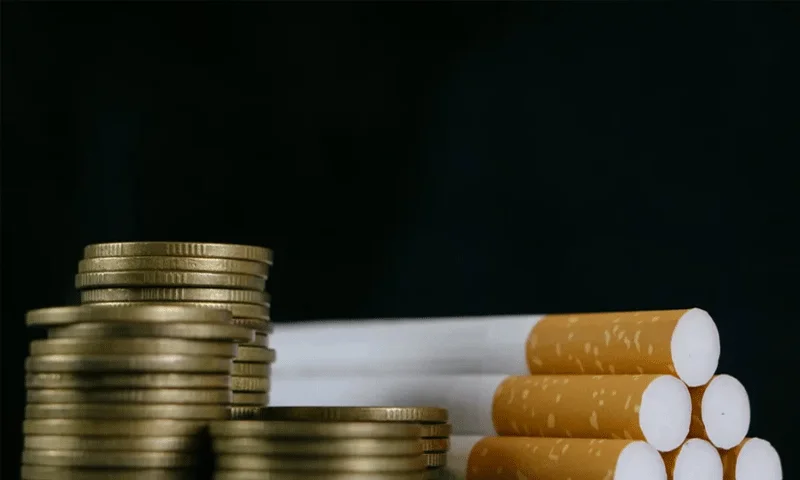Experts: Tobacco products remain affordable in proposed budget FY25
Share on:

Will encourage youngsters to use tobacco products more
If the proposed national budget for fiscal year 2024-25 is implemented, tobacco products will stay affordable, encouraging people to use tobacco products, increasing tobacco-related fatalities and diseases, and therefore increasing the government's public health spending, experts said.
The proposed budget will cost the government the opportunity to generate Tk10,000 crore in additional revenue.
The proposed budget hikes the selling price of ten sticks of low-tier cigarettes to Tk50 from Tk45.
This means that the raise per stick is merely Tk0.50 (11.11%). The supplementary duty (SD) has increased by 2%, from 58% to 60%.
Prices for ten sticks of medium and high-tier cigarettes have been raised to Tk70 from Tk67, a 4.48% increase, and Tk120 from Tk113, a 6.19% increase, respectively.
The price of ten premium-tier cigarettes has been hiked to Tk160 from Tk150 (a 6.67% increase).
The extra duty in all of these tiers has been increased by 0.5% to 6.67% from the previous 65%.
Furthermore, the prices for 10 grams of jarda and gul have increased by Tk3 (6.67%) and Tk2 (8.7%), respectively. The SD remains unchanged.In addition, the prices and SD of bidi have seen no change at all.
To put the changes in tobacco products’ prices into perspective, one may consider the increases in the prices of essential commodities in recent years.
According to the Department of Agricultural Marketing (DAM), the prices of essential goods, such as sugar, flour, and potatoes, have seen a rise ranging from 40% to 90%.
On the other hand, the increases in the prices of tobacco products in the proposed budget range from 4.48% to 11.11% only, with the prices of bidi remaining unchanged.
This will make tobacco products cheaper compared to essential commodities and pose a threat to public health.
Simultaneously, since the hike in the prices of tobacco products is much lower than the rise in per capita income, it will make tobacco products more affordable.
According to the Bangladesh Bureau of Statistics (BBS), there has been around a 12% increase in per capita income between FY 2022–23 and FY 2023–24.
Notably, very recently, the third report of the Tobacconomics Cigarette Tax Scorecard revealed a grim picture of the affordability of cigarettes in Bangladesh.
The Tobacconomics Cigarette Tax Scorecard is prepared based on four factors: cigarette price, change in cigarette affordability, tax share, and excise tax structure.
Bangladesh scored 1.13 out of 5. The country's score in the previous report was 2.38.
It is evident that the country score nearly halved in two years, owing to the nil country score in the affordability factor.
The Tobacconomics team at the Bloomberg School of Public Health at Johns Hopkins University published the report based on data from 170 countries.
In his reaction to the proposed national budget, ABM Zubair, executive director of PROGGA, said: “The retail price as well as the SD imposed on the low-tier cigarettes, which hold 75% of the cigarette market share, have seen a negligible change.
“We demand that the government set the retail price at least at Tk60 and SD 63% so that it reduces the affordability of cigarettes, safeguards the youth, and increases the revenue of the government manifold,” he added.
Notably, the prevalence of tobacco use among Bangladeshi adults is 35.3%, and tobacco claims 161,000 lives a year in Bangladesh.
The proposals of anti-tobacco activists, if realised, will prevent the premature deaths of 1.1 million people, which also includes at least half a million youth.

